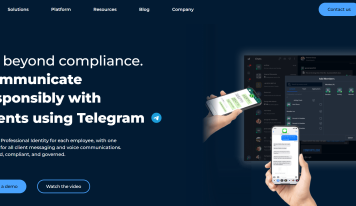I try to always look out for my readers and as such I have been one of the harshest critics of closed app stores and how they could change the computing paradigm via censorship which is not good for users. But for the US there may be very important reasons to embrace this new transformation – especially as it pertains to the Apple and iTunes App Store. To set this article up let’s explore the extent of global software piracy – currently the total amount of pirated software stands at $53B according to a study by the BSA and IDC.
According to the report:
Central and Eastern Europe represented the regions with the highest piracy rate (67%), followed by Latin America (65%). Georgia had the highest piracy rate at nearly 95% followed by Armenia, Bangladesh and Zimbabwe.
The United States has the lowest PC software piracy rate in the world, 20%, but because it is the world’s largest software market, it has the largest dollar losses from piracy, $9.1 billion. Japan, New Zealand and Luxembourg also have low software piracy rates, near 20%.
But with app stores and especially the one required to run apps on iPhones, iPads and iPod Touch devices, developers have no choice but to ensure they are paid the full price they set if they want to have their products distributed by Apple. Moreover, Apple gets 30% of the revenue associated with all the software sold in the store meaning this US company sees a rather large percentage of software sales regardless of where developers or users are located. As Apple continues to take the world by storm – and seeing how the company received over 600,000 iPhone 4 pre-orders in one day, enough to crash their systems – there seems to be no shrinking desire to use the company’s products. Things are so good for Apple right now; some are asking if the company and AT&T can even handle all the orders for the highly-anticipated new device.
One threat to Cupertino comes from cloud-based software from Google, Microsoft and others which is essentially free and potentially ad-supported. Still, using apps can be a much better experience than using the web – depending on how well developers utilize the particular environment their programs exist in. And with the generally low-cost associated with many of the apps in the App Store, Apple and the developer community seem to have hit upon a formula where users are comfortable shelling out money for their apps.
According to GigaOM referencing a survey about six months old, the average App Store user spends $4.47 on apps every month. I expect this number to increase as the number of apps increase in the store and it is worth noting there are almost double the number of apps in the store today as there were at the end of last year! Assuming 100 million App Store users this translates into $53.64 per year per user or $5.3B in total. At this amount, apple’s take would be $1.6B!
Another threat to Apple is jailbreaking – the act of bypassing the company’s control over the OS and subsequently opening yourself up to a world of free apps and multitasking. In my experience, the many people I know who do jailbreak still pay for apps and those who don’t are generally students who couldn’t afford to pay for apps anyway. People who are super-technical seem to be the primary “jailbreakers” and Apple’s products are so easy to use; the threat of having to deal with an OS which may crash or have problems has kept many who would jailbreak from taking the plunge. That and the fact that jailbreaking voids the Apple warranty.
Still, estimates regarding jailbreaking by Jay Freeman, founder of Cydia, one of the leading “jailbroken” app stores put the number of these devices at around 8.5% of iPhones and iPod Touch devices.
Another reasons many customers jailbreak has to do with the ability to categorize apps and this feature as well as multitasking should be coming to Apple’s devices soon and this may decrease the temptation to skirt the official App Store.
How a categorized jailbroken iPhone screen might look
There is obviously a transformation taking place in computing and while Apple continues to increase share it will do so while changing the software purchasing model most consumers and businesses are used to. With a commanding number of mobile devices on the market, developers have an incentive to charge prices which are considered reasonable while making it up on volume.
We are hit with negative news reports everyday which remind us that US jobs are being shipped overseas and the US federal government is so big and bloated that their best solution for plugging massive oil spills is to talk them to death. Moreover as the government keeps the US mint printing presses running 24×7 and creates the most anti-business environment seen in my lifetime, most sane citizens are investing in gold and other commodities because they are absolutely petrified by where the country is headed.
While I share many of these concerns I have to smile when I realize that the creative genius of at least one US company will force the rest of the world to depend on the US as much if not more than the US has to depend on OPEC.
Honorable mentions go to Cisco, HP, Dell, Facebook, Twitter, Google, Microsoft, Oracle, Intel and the many other companies which keep the US and international tech space humming.






